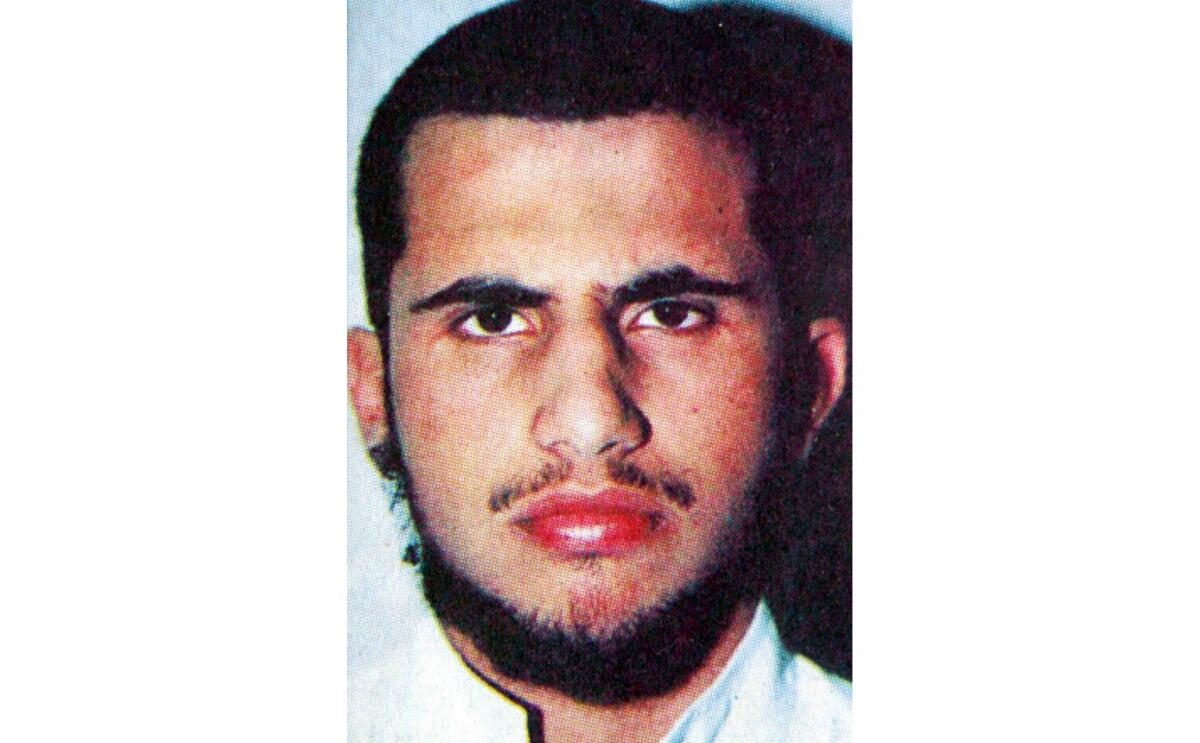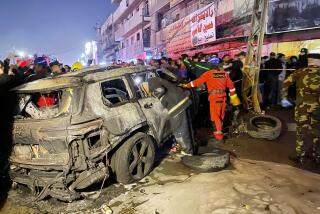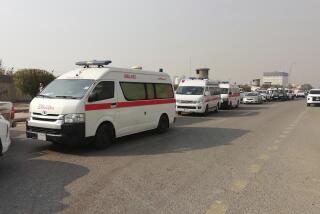Pentagon says senior Al Qaeda leader killed in drone strike

The Pentagon says Muhsin Fadhli was killed in a U.S. military drone strike.
Reporting from Washington — A U.S. military drone strike in northwest Syria has killed Muhsin Fadhli, the head of a shadowy cell of veteran Al Qaeda operatives known as the Khorasan Group that sought to attack Western targets, Pentagon officials said.
The 34-year-old Kuwaiti’s vehicle was hit July 8 as it traveled near the Turkish border in the Syrian town of Sarmada.
Fadhli reportedly had long-term relationships with top-ranking Al Qaeda leaders, including Ayman Zawahiri, the Egyptian who took over the terrorist network after Navy SEALs killed Osama bin Laden in Pakistan in 2011.
“He was a senior Al Qaeda facilitator who was among the few trusted Al Qaeda leaders that received advanced notification of the Sept. 11, 2001, attacks,” Pentagon spokesman Capt. Jeff Davis said in a statement.
“His death will degrade and disrupt ongoing external operations of Al Qaeda against the United States and our allies and partners.”
CIA and military analysts had tried to track Fadhli’s movements since he allegedly took part in the 2002 attack on the French ship MV Limburg. The assault killed one crew member, injured four others and released thousands of barrels of oil into the Gulf of Aden off Yemen.
Fadhli, a former teenage Taliban fighter in Afghanistan, rose steadily through Al Qaeda’s ranks.
In 2012, he was identified as head of the network’s operations in Iran. He wore a close-cropped beard and a thin black mustache in one of the FBI’s few photographs of him.
A year later, Fadhli traveled to Syria to become a senior member of the Nusra Front, Al Qaeda’s affiliate there. The group is among several rebel groups in the country’s bloody civil war.
But the officials said Fadhli was sent to Syria with other Al Qaeda operatives from Yemen, Pakistan and Afghanistan specifically to recruit foreign fighters from America and Europe. They hoped to send them home to carry out lethal attacks, intelligence reports said.
Fadhli’s faction became known as the Khorasan Group, a name derived from an ancient Persian word that means the “land where the sun rises.” The group is also named after an 8th century province in an early Islamic caliphate that spanned what is now northern Iran and part of Afghanistan.
U.S. intelligence officials warned that Al Qaeda, which had suffered heavy losses to drones and counter-terrorism operations, was intensifying efforts to launch attacks on Western targets as the Obama administration and its allies focused on the emerging threat from Islamic State, a rival group.
Fadhli brought in operatives from Yemen who had learned from a notorious Al Qaeda bomb maker, Ibrahim Asiri. U.S. officials believe Asiri created the bomb that a Nigerian passenger unsuccessfully sought to detonate aboard a Northwest Airlines plane over Detroit on Christmas Day in 2009.
Intelligence analysts feared Fadhli and the Khorasan Group were getting closer to being able to execute a terrorist attack on a passenger jet by concealing explosives in clothing or cellphones.
The Obama administration specifically targeted Fadhli and others in the group last September when the Pentagon launched airstrikes against Islamic State militants and positions in northwestern Syria.
At the time, U.S. intelligence officials believed they had killed Fadhli.
Follow @wjhenn for military and defense info.
More to Read
Sign up for Essential California
The most important California stories and recommendations in your inbox every morning.
You may occasionally receive promotional content from the Los Angeles Times.











